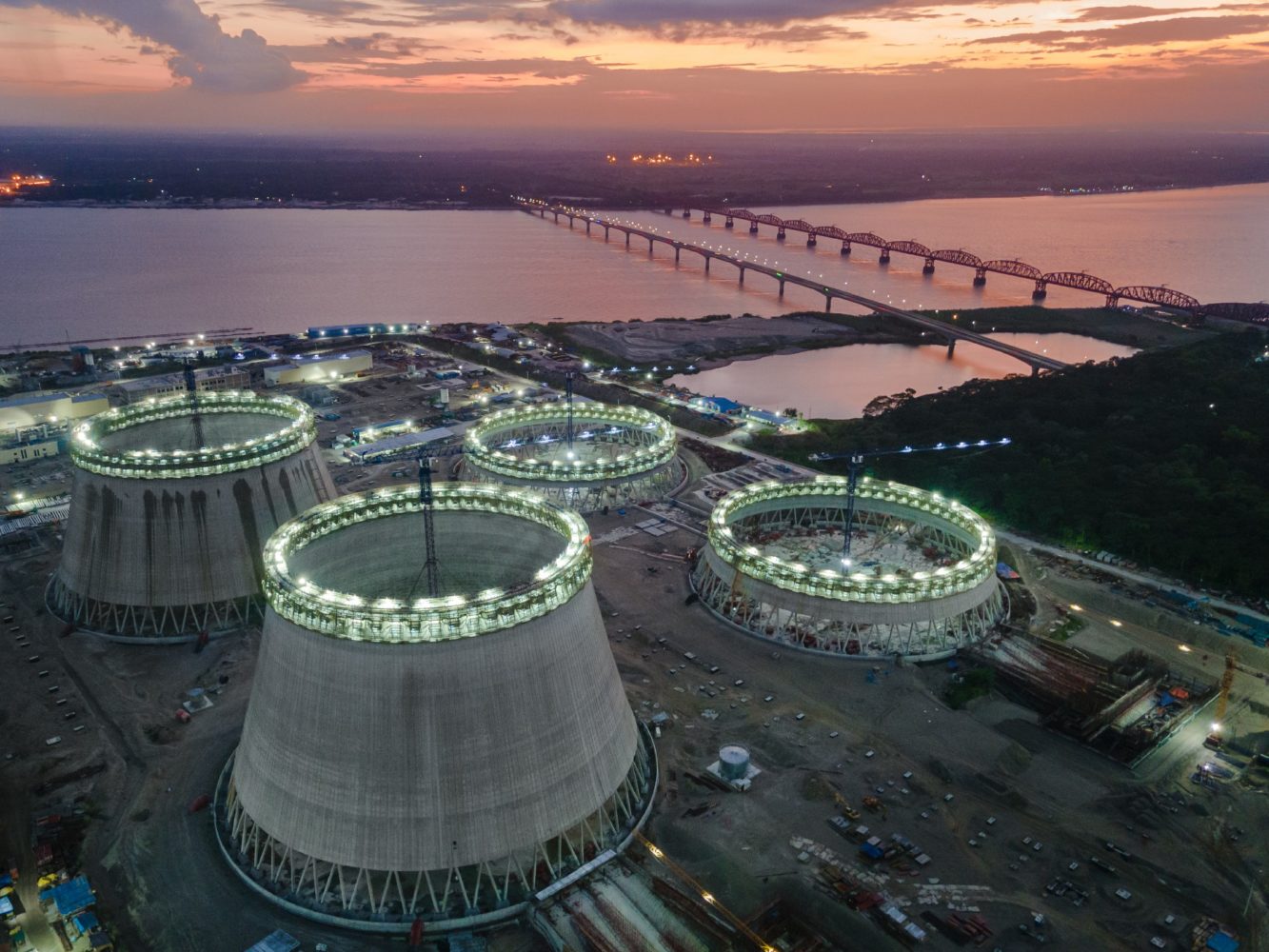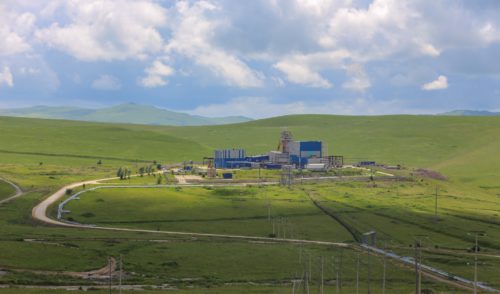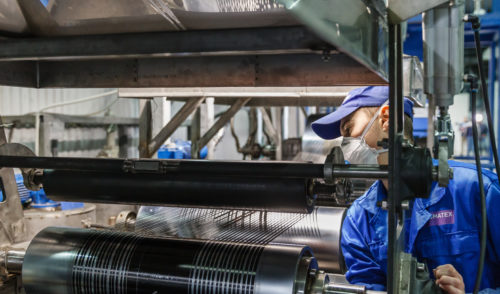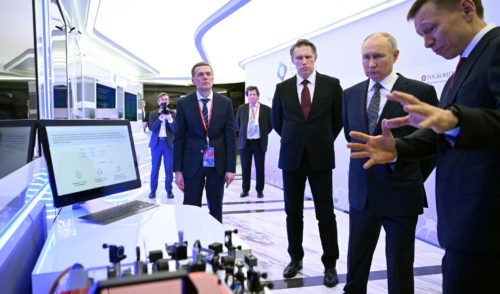
Rising Up
back to contentsBangladesh’s first nuclear power plant is growing by leaps and bounds as concreting of the internal containment dome began in August. The Bangladesh Parliament’s audit commission visited the construction site. The delegates expressed their satisfaction with the speed of construction works.
Workers sometimes call the internal containment dome a ‘skullcap.’ More than 3,200 cubic meters of concrete need to be laid on a steel structure measuring 17.6 meters high and 42.8 meters in diameter with four concrete placement booms.
“We proceeded to the last stage of building the passive safety system. Our experience gained from doing the similar work at the first reactor unit helps us optimize the concreting process,” Alexei Deriy, ASE Vice President and Director of the Rooppur construction project, commented.
The internal containment dome is a key safety structure of a nuclear power plant. It protects the reactor island and serves as a support for pipeline penetrations and a polar crane used for reactor maintenance operations.
The Rooppur nuclear power plant will have two VVER‑1200 reactors with an installed capacity of 2,400 MWe. In late August, the construction site was visited by members of the audit commission of the Parliament of Bangladesh. They inspected both power units of the plant. Russian engineers engaged in construction works made a presentation about the progress at the project.
In a discussion following the site audit, the members of the audit commission stated that bringing the Rooppur NPP online would reduce the shortage of electricity in the country and decrease its price. It was also noted that electricity generated by the plant would contribute to an accelerated development of the country.
The delegation was headed by Chairman of the audit commission, Mohammed Abdus Shahid. Minister of Science and Technology of Bangladesh, Yafes Osman, also took part in the audit. “The project is carried out in accordance with a bilateral agreement, and we hope the works will be finished on time,” Yafes Osman said.
Mohammed Abdus Shahid noted that completion of the project would cut power shortage in the country as the plant would supply sufficient amounts of electricity. If the Rooppur project is a success, the government of Bangladesh might consider building more nuclear stations.
The chairman of the audit commission pointed out that the project was progressing and even the COVID‑19 pandemic had not affected it in any substantial way. According to him, Russia — a reliable and trusted friend that supported Bangladesh in its War of Independence — moves the project to completion in full compliance with the agreement.




